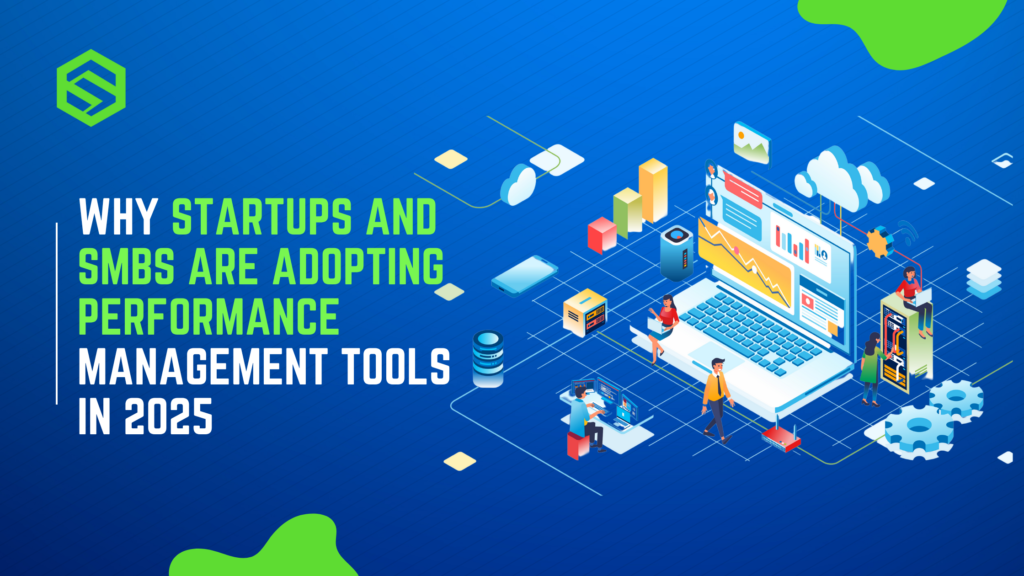Why Startups and SMBs Are Adopting Performance Management Tools in 2025

Introduction: The Rising Need for Smart Tools
Startups and SMBs are scaling faster than ever in today’s digital era. To manage people and productivity efficiently, many now turn to performance management tools. These platforms bring structure, clarity, and focus to daily workflows. As teams become more remote and dynamic, tracking progress and improving output becomes essential. Startups especially benefit from real-time analytics and feedback loops. While growth remains the ultimate goal, these tools ensure nothing gets overlooked. Additionally, adopting such tools early offers a competitive advantage. That’s why their usage is rapidly growing.
Streamlining Feedback and Reviews
Many startups struggle with formal performance reviews. Traditional reviews are time-consuming and subjective. Instead, performance management tools offer real-time feedback mechanisms. These systems promote continuous conversations rather than yearly evaluations. Furthermore, clear metrics help managers make data-backed decisions. As a result, employees understand expectations early. With structured feedback, improvement becomes a habit. Therefore, companies see faster development and better retention. These tools also support anonymous input, ensuring transparency and honesty. Consequently, businesses build a culture of trust.
Real-Time Goal Tracking and Alignment
Startups often shift priorities rapidly. Hence, teams must stay aligned at all times. Using performance management tools, companies can set clear objectives and measure progress. Additionally, OKRs and KPIs help track individual contributions to company goals. With real-time dashboards, leaders spot misalignments early. This allows quick corrections and avoids project delays. Moreover, employees feel more connected to outcomes. When efforts match expectations, motivation increases. Such alignment fosters ownership, even in hybrid or remote settings. Therefore, these tools are critical in today’s work culture.
Enabling Remote Performance Oversight
Remote work has become the standard for startups and SMBs. However, tracking team output without micromanaging is tricky. Performance management tools simplify this challenge with live data and reporting. These platforms show work patterns, task status, and bottlenecks. Hence, managers can guide rather than control. In addition, automation reduces repetitive admin tasks. Employees also receive visibility into their goals and progress. This independence boosts accountability and focus. Consequently, remote teams work with greater confidence and clarity. Over time, productivity improves significantly.
Data-Driven Decision Making
In 2025, businesses rely heavily on data for strategic decisions. Performance management tools consolidate employee performance insights into actionable formats. With built-in analytics, businesses assess trends, gaps, and growth opportunities. Moreover, these insights guide hiring, training, and promotions. Instead of relying on assumptions, leaders make evidence-based decisions. This approach fosters fairness and boosts morale. Furthermore, performance data can highlight top talent for key roles. As decisions become smarter, organizational efficiency increases. Ultimately, this leads to long-term sustainability and growth.
Boosting Employee Engagement and Retention
Satisfied employees drive business success. Performance management tools support engagement through regular feedback, recognition, and coaching. These tools allow timely praise and constructive suggestions. In turn, employees feel seen and valued. Moreover, they encourage self-improvement and goal-setting. When individuals track their growth, they stay motivated. These platforms often include learning modules for continuous upskilling. As employees develop, loyalty deepens. Furthermore, engaged workers spread positivity across teams. This reduces turnover, saving recruitment costs. Startups, therefore, benefit immensely from consistent engagement strategies.
Cost-Effective Scaling for Growing Teams
Startups need to scale without losing control. Manual tracking becomes impossible as teams expand. Performance management tools automate the process, ensuring consistency. These tools also integrate with HR and payroll systems, reducing complexity. Additionally, they’re cloud-based, allowing anytime, anywhere access. As hiring increases, onboarding becomes faster through structured workflows. With less time spent on admin, managers focus on strategy. Moreover, automated reporting saves time during reviews. This leads to cost savings and increased efficiency. Hence, they’re ideal for growing businesses.
Explore how SAMPAT can streamline your operations: Book a Demo
Conclusion: A Smarter Way Forward
Startups and SMBs must evolve quickly in competitive markets. Performance management tools empower them with clarity, structure, and data. They foster collaboration, transparency, and continuous growth. More importantly, these tools adapt as the company scales. With measurable progress and reduced guesswork, leaders make smarter decisions. Employees also thrive with consistent guidance and feedback. As 2025 unfolds, digital performance tools will become the standard. Now is the time to invest in smarter performance strategies.


